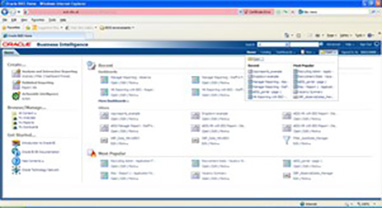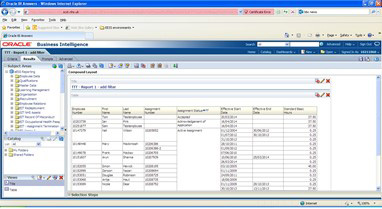With the outbreak of war in 1939, the Government decided to build a number of Emergency Medical Service Hospitals outside Glasgow to treat expected casualties. One of these was Ballochmyle Hospital, which was built in the grounds of Ballochmyle House.
Robert Burns wrote two songs in praise of Ballochmyle ‘The Braes of Ballochmyle’ and the better known ‘Lass of Ballochmyle’. The Mansion House was used as a residential accommodation for the hospital staff.
The hospital consisted of 32 main wards arranged in groups of 8, each ward contained 40 beds. The Plastic Surgery and Jaw unit began in December 1940 working under the periodic guidance of Sir Harold Gillies.
Initially, Mr Andrew Hutton from the Western Infirmary, Glasgow, was in charge with the assistance of Mr MacLennan, a Consultant Surgeon who had done a short course with Gillies.
Gillies, who made frequent visits to EMS hospitals throughout the country, met Jack Tough in Stacathro Hospital and thereafter, Tough went for periods of training including a spell in Rainsford Mowlem’s Unit. Jack Tough was appointed Surgeon in Charge of the Plastic Surgery and Jaw Unit in 1943.
During this spell, the Unit was used to train officers in the Royal Army Dental Corps. About the same time, beds were made available in Seafield Children’s Hospital in Ayr, for the treatment of congenital and childhood problems. The population served is almost 3 million in the West of Scotland. Inpatient treatment for patients continued to be carried out in Ballochmyle until the opening of The Canniesburn Unit in 1967 and the Seafield Unit continued to be utilised until October 1991.
Walter Smith OBE, Senior Chief Maxillofacial Technician, worked in Ballochmyle from 1940 and then in Canniesburn until his retirement in 1979.
The technical work continued under Matt Orr and his colleagues, who provided a very high standard of orthognathic and prosthetic services to the maxillofacial and plastic surgeons.
Another member of staff was Ian McIntyre who, on demobilisation from the Army Medical Corps, did a spell in the Plastic Surgery Unit as a civilian before joining the Colonial service, going to St Helena for several years and ultimately to Tasmania, where he became Chief Medical Officer of Health in Hobart.
Burns Unit
Glasgow Royal Infirmary made separate provision for the treatment of burns in 1833, followed by the opening of the Burns Unit in 1873. This was not done out of a sense of altruism for the burn patient, but to protect the other surgical patients from the effects of these ‘nasty smelly infected and infective burns’.
The unit was administered by a series of general surgeons until the 1940s when Leonard Colebrook, the bacteriologist, was put in charge with the unit becoming a Medical Research Council project. It was during this time that Tom Gibson carried out his work on the ‘second set phenomenon’. Peter Medawar, later Sir Peter, was brought to the unit to carry out further work with Gibson, which formed the basis of present day tissue transplantation and Medawar being awarded a Nobel Prize.
Gibson was called up for armed service, being demobilised in 1947. In 1948, he joined Tough as a Consultant in the Plastic Surgery Unit. The Burns Unit became part of the Plastic Surgery Unit. The Burns Unit became part of the Plastic Surgery Unit in 1948 and was housed in Ward 40/41 of the Glasgow Royal Infirmary.
At this time, Ward 42/43 was the Department of urology, but in the early 1950s became the Plastic Surgery Unit. This was very convenient as the Plastic Surgical, Maxillofacial and burns patients, were housed in a self contained block, with dental chairs and associated laboratory facilities. In charge of the maxillofacial Unit was Dr Stephen Plumpton, with Iain McD Allan and Steven Dobie as Senior Hospital Dental Officers.
Stephen Plumpton in addition to his dental expertise was an authority of many aspects of sport, in particular horse racing upon which he would expound at great length, given an opportunity.
In late 1954/early 55, Jack Mustarde joined the unit as a consultant and about the same time, half a ward was given to Plastic Surgery in the Western Infirmary from the Professorial Unit. Ian McGregor, Senior Registrar in the Unit at the time, exchanged with B Herold (Hal) Griffiths in Herbert Conway’s Unit in New York for a period of 6 months, returning in January 1956.
A short time thereafter, beds were made available at Philipshill Hospital for Plastic Surgery, which Tom Gibson utilised, and then a Spinal Injuries Unit was opened in the early 60s, surgery of the pressure sores being carried out by the Plastic Surgeons.
From 1958 to 1960 Ian McGregor moved to be in Charge of the Casualty Department in Glasgow Royal Infirmary, during which time he published the ‘Fundamental Techniques of Plastic Surgery’, returning at the end of this period as a Consultant to the Plastic Surgery Unit.
In the early 1960’s the Association of the Unit with what was to become the Bio-Engineering Unit of Strathclyde University began, and Tom Gibson carried out his work on tissue mechanics, especially skin and cartilage. He also was appointed to the Department of Surgery in the Western Infirmary, Glasgow as Senior Lecturer in Tissue Transplantation and had access to beds and a theatre session in the Professorial Unit of Sir Charles Illingworth.
Bill Reid rejoined the unit as Senior Registrar in mid 1961 and largely was responsible for the Burns Unit until his retirement. This responsibility has now been taken over by Ian Taggart and Stuart Watson. In 1961, plans were drawn up for a new Plastic Surgery Unit of 138 beds and associated facilities to be built at Canniesburn where the Royal Infirmary already had convalescent and private beds. At this time, proposals were also made for the building of a Geriatric Unit.
Jack Tough and one of the Health Board Architects, John Peters, between them designed the building. The completion and opening of the Plastic Surgery Unit at Canniesburn and the achievement of a now world recognised centre is outstanding, and due tribute should be made to the diligence, determination and forethought which Tough put into the project. The very fact that the building was completed and became operational is in itself a great tribute, especially when considered in the light of the amount of powerful opposition to the project in the Medical/Surgical establishment. The cost of the Unit was £996,000 (less than the estimate of over £1,000,000). Comparatively, the Western Region Hospital Boards expenditure on heating, lighting and power was £1.6 million in 1965 for all its hospitals.
Although the unit admitted patients in September of 1967, it was not officially opened until the 23rd May 1968 by the then Chairman of the Western Regional Hospital Board, Sir Simpson Stevenson. Unfortunately, the full bed complement has never been utilised, a maximum of 122 beds being used, but the throughput of patients steadily increased during the years.
The essentially peripatetic nature of the Plastic Surgeons’ practice was reduced by the opening of Canniesburn and the closure, apart from out patients, of the beds in Ballochmyle and the Western Infirmary. To some extent, this was countered by a few ‘grace and favour beds’ in the Dermatology Department of the Western Infirmary under Professor John Milne, which gave him the only Dermatology Department at the time in the UK to have surgery carried out. The surgery was performed by Ian McGregor. Bill Reid began a clinic in Stobhill Hospital in 1961, which was taken over in 1980 by Gus McGrouther and during 1980, Ian McGregor started an outpatient clinic in Monklands Hospital which was taken over by David Soutar on his appointment as a Consultant Plastic Surgeon in 1981 and later by Stuart Watson. Clinics and outpatient operating sessions were started in Paisley and Greenock by Martyn Webster.
Jack Tough retired in 1970 prematurely, due to ill health and survived until 1977. However, he had seen his plan come to fruition.
The Unit became the hub of the West of Scotland Regional service and all major plastic surgery for the West of Scotland was therefore centralised into Canniesburn. The sheer volume of cases together with the Consultant expertise, rapidly gave Canniesburn an international reputation as a centre of excellence. It attracted visitors and trainees from all over the world and developed international teaching and training courses which continue to the present day. With Canniesburn at the centre, peripheral facilities were required to service the population for the West of Scotland. Out- reach facilities, particularly for clinics and day case operating, were developed in many of the district general hospitals that were being set up in the neighbouring health boards. The major elective cases were still done at the hub in Canniesburn, but trauma and emergencies were done at a wide variety of differing hospitals.
There was a need to centralise trauma services in plastic surgery and so in the early 1990s, a new Burns and Trauma Unit was opened in wards 23 and 24 in Glasgow Royal Infirmary and the old Burns Unit vacated. With the increasing complexity of plastic surgery and its involvement in major deformity and cancer work, there was a need to move Canniesburn to a major hospital which could accommodate both the elective and emergency work load of plastic surgery.
A new Canniesburn Plastic Surgery Unit was built within the Jubilee Building at Glasgow Royal Infirmary bringing together both elective and emergency plastic surgery for the first time. Such is the international reputation of Canniesburn as a centre for plastic surgery, that the name has been retained. The new home of the Canniesburn Plastic Surgery Unit is modern and offers all the advantages of a major teaching hospital. This together with the dedicated staff will ensure the continuing high reputation of the Unit.


